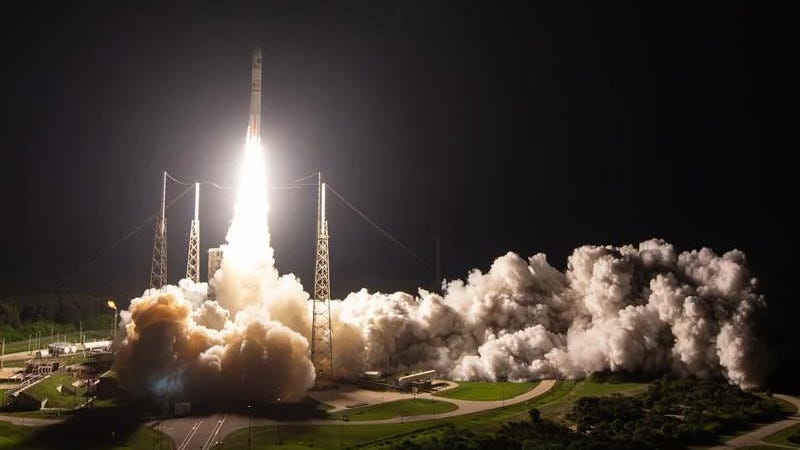ULA Vulcan Rocket Completes First National Security Space Mission
Space Force Certifies New Launch Vehicle as Atlas V Replacement
A classified payload launched successfully to orbit last week marking a milestone for United Launch Alliance's newest rocket. The Vulcan Centaur lifted off at 8:56 p.m. EDT from Space Launch Complex-41 at Cape Canaveral Space Force Station, carrying the USSF-106 mission for the U.S. Space Force's Space Systems Command.
"Vulcan did exactly what it was built to do: deliver a critical mission with power, precision and confidence."
Gary Wentz, United Launch Alliance
The launch represents the first National Security Space Launch mission aboard ULA's certified Vulcan rocket. It was the third launch of the powerful new Vulcan after two test flights last year and the first to be "certified" by the Space Force to carry costly national security spy satellites and other expensive military spacecraft.
"National security begins at liftoff," said Gary Wentz, ULA vice president of Government and Commercial Programs. "Vulcan did exactly what it was built to do: deliver a critical mission with power, precision and confidence. We are proud to play a role in strengthening the nation's space capabilities."
The Vulcan Centaur VC4S rocket, equipped with four solid rocket boosters, deployed the USSF-106 payload directly to geosynchronous orbit. At least two satellites were believed to be on board: one fully classified spacecraft and another. The mission details remain classified in accordance with standard military launch protocols.
ULA's Vulcan is replacing the company's workhorse Atlas 5 rocket and the already-retired Delta 4 family of launchers. The addition of the Vulcan rocket as a certified launch system ends U.S. reliance on Russian engines as directed by Congress, following the National Security Strategy to invest at home.
"Vulcan is a catalyst to supporting national defense in the strategic warfighting domain of space," said Tory Bruno, ULA president and CEO. "Vulcan is the world's most capable, high energy orbit rocket meeting the demand for expanding space competencies. Vulcan provides flexibility to our nation's decision makers as we combat our adversaries' attempts to disrupt the U.S. in space operations. This launch begins a new era in national space security."
ULA plans to ramp up Vulcan rocket launches significantly in the next two years to a possible annual number of more than 30 by 2027 — 60% for commercial and 40% for the Defense Department and intelligence community. USSF-106 is the first of nine planned missions that ULA aims to achieve before the end of the year.
The Boeing-Lockheed Martin partnership has positioned the Vulcan as a key competitor in the national security launch market, designed specifically to meet Defense Department requirements while remaining cost-competitive for commercial missions.





